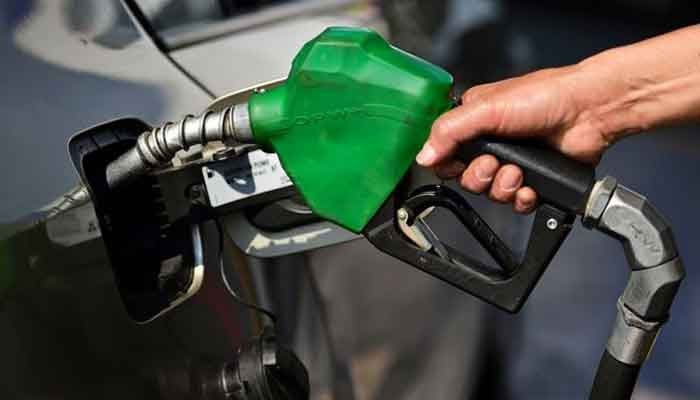Govt moves towards deregulation of petroleum prices
KARACHI: The government has initiated the process to deregulate the prices of four key petroleum products by forming a working group tasked with developing a concept paper within seven days, as part of its roadmap for the future strategy of the country’s downstream oil sector.
According to a notification from the Petroleum Division issued on Thursday, the working group will include representatives from the Oil and Gas Regulatory Authority (Ogra), the Director General of Oil (Petroleum Division), Pakistan State Oil (PSO), and the refinery sector.
The notification also revealed that the government has called for nominations from various departments to schedule a meeting of the working group. The government’s consideration of deregulating petroleum prices began following a meeting in July 2024, during which the issue was discussed. The move to deregulate prices was prompted by a directive from the prime minister’s office.
In July, the Petroleum Division wrote to Ogra requesting the development of a framework for the deregulation of petroleum product prices.Currently, petrol, high-speed diesel, light diesel oil, and kerosene are regulated products in the country, while jet fuel for air force and airlines, hi-octane, and furnace oil are deregulated.
The oil sector has long advocated for deregulating petroleum prices. Industry stakeholders have also called for a revision of the current pricing mechanism, which is based on a 15-day average price. They argue that switching to a weekly pricing system would help reduce extreme fluctuations in high-speed diesel sales, particularly during slower sales periods. Many believe that deregulation could improve market conditions.
While oil marketing companies (OMCs) support the deregulation of petroleum prices, dealers, including petrol pump owners, oppose the move, fearing it would place their commissions under the control of OMCs.
Currently, the prices of the four regulated products are set on a fortnightly basis, with margins for petroleum dealers and OMCs fixed by the government. The sector has been pushing for a revision of these margins, which has led to higher costs for consumers.
-
 Kanye West's Best Songs: Fans Argue Over Bold Top 10 Ranking On Social Media
Kanye West's Best Songs: Fans Argue Over Bold Top 10 Ranking On Social Media -
 King Charles Secretly Relies On Advice From THIS Royal
King Charles Secretly Relies On Advice From THIS Royal -
 Jennifer Garner Reveals Beauty Choice She Makes As Botox Alternative In Her 50s
Jennifer Garner Reveals Beauty Choice She Makes As Botox Alternative In Her 50s -
 Kate Middleton Drops Four-word Message For Young Girl After Wales Visit
Kate Middleton Drops Four-word Message For Young Girl After Wales Visit -
 Shamed Andrew Uncensored ‘massages’ Should Be Refunded To Public
Shamed Andrew Uncensored ‘massages’ Should Be Refunded To Public -
 Kylie Kelce Reveals Rules She Wants Daughter Bennett To Learn At 3: No More 'passies'
Kylie Kelce Reveals Rules She Wants Daughter Bennett To Learn At 3: No More 'passies' -
 Smartphone Market Set For Biggest-ever Decline In 2026
Smartphone Market Set For Biggest-ever Decline In 2026 -
 Mud, Rain, Loincloths: All About Japan’s 200-year-old Harvest Wrestling Ritual
Mud, Rain, Loincloths: All About Japan’s 200-year-old Harvest Wrestling Ritual -
 Jonathan Majors Set To Make Explosive Comeback To Acting After 2023 Conviction
Jonathan Majors Set To Make Explosive Comeback To Acting After 2023 Conviction -
 Next James Bond: Why Jacob Elordi May Never Get 007 Role?
Next James Bond: Why Jacob Elordi May Never Get 007 Role? -
 Maddox Drops Pitt From Surname In Credits Of Angelina Jolie’s New Film 'Couture' Despite Truce From Father's End In Legal Battle
Maddox Drops Pitt From Surname In Credits Of Angelina Jolie’s New Film 'Couture' Despite Truce From Father's End In Legal Battle -
 Meghan Markle Adds Diamonds To Engagement Ring For Jordan Trip
Meghan Markle Adds Diamonds To Engagement Ring For Jordan Trip -
 Burger King Launches AI Chatbot To Track Employee Politeness
Burger King Launches AI Chatbot To Track Employee Politeness -
 Andrew’s Woes Amid King Charles’ Cancer Battle Triggers Harry Into Action For ‘stiff Upper Lip’ Type Dad
Andrew’s Woes Amid King Charles’ Cancer Battle Triggers Harry Into Action For ‘stiff Upper Lip’ Type Dad -
 Experts Warn Andrew’s Legal Troubles In UK Could Be Far From Over
Experts Warn Andrew’s Legal Troubles In UK Could Be Far From Over -
 Teyana Taylor Reflects On Dreams Turning Into Reality Amid Major Score
Teyana Taylor Reflects On Dreams Turning Into Reality Amid Major Score




